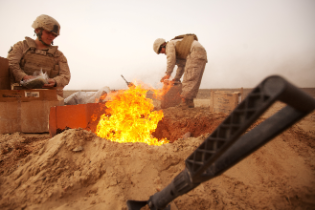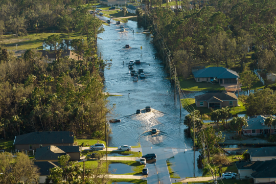Finance
Senate advances bill on veterans' burn pit care

The U.S. Senate’s decision to advance legislation on veterans’ burn pit care represents a turning point in how the country acknowledges and addresses the hidden wounds of modern warfare. For decades, open-air burn pits were used in Iraq, Afghanistan, and other conflict zones to dispose of waste ranging from plastics and electronics to medical and chemical materials. The thick, toxic smoke blanketed bases and living quarters, exposing thousands of service members to harmful fumes on a daily basis. Years later, many veterans began suffering from respiratory diseases, cancers, and chronic health conditions that doctors increasingly linked to these exposures. Yet, until recently, their path to recognition and support from the Department of Veterans Affairs (VA) was filled with hurdles. Veterans were often asked to provide near-impossible evidence that their illnesses were caused by burn pit exposure, leaving many without the care or compensation they desperately needed.
The bill, advanced as part of the sweeping PACT Act, seeks to eliminate this burden of proof by establishing presumptions for a range of diseases tied to toxic exposure. In practice, this means veterans will no longer have to fight to prove what medical science and experience on the ground already suggest—that exposure to burn pits has lasting and devastating health effects. The legislation also expands eligibility for VA health care and simplifies the benefits process, aiming to deliver quicker and more reliable support. Advocates say it’s not just a policy shift, but a moral correction, ensuring that veterans are not left behind after risking their lives in service. For families who have lost loved ones or watched them suffer without recognition, the bill represents long-awaited validation of their sacrifices.
Still, the path forward has not been without controversy. Some lawmakers raised concerns about the financial implications of the legislation, with estimates running into the hundreds of billions of dollars over the coming years. A central point of debate is whether these costs should fall under mandatory spending, which is less subject to annual congressional control, or remain part of discretionary spending. Critics warn that shifting categories could reshape budget priorities for decades, while supporters argue that no fiscal concern should outweigh the country’s obligation to its veterans. The bipartisan nature of the bill’s support, however, underscores how powerful the issue has become—rarely do lawmakers agree so strongly across party lines in today’s polarized environment.
At its heart, the Senate’s action is about more than money or politics; it is about trust and responsibility. Veterans, their families, and advocacy groups have long argued that the government was too slow to respond to the dangers of toxic exposure, repeating mistakes made after Vietnam with Agent Orange. By advancing this bill, lawmakers signal that those lessons have been learned—that service members will no longer be forced to wage another battle at home just to secure the care they earned abroad. The momentum behind the legislation reflects a collective recognition that the health toll of burn pits is not just an individual tragedy but a national one, demanding both compassion and accountability.

Emily Johnson
Reporter
At least 20 people killed in Russian glide bomb attack on village in eastern Ukraine

Transition vs. Physical Risk A decision tree for which risk dominates by industry.

Getting Assurance-Ready — Controls and evidence trails for sustainability data.
trending posts

TOP Categories
Google Web Reporters












3 comments
David Bowie
3 hours agoEmily Johnson Cee
2 dayes agoLuis Diaz
September 25, 2025